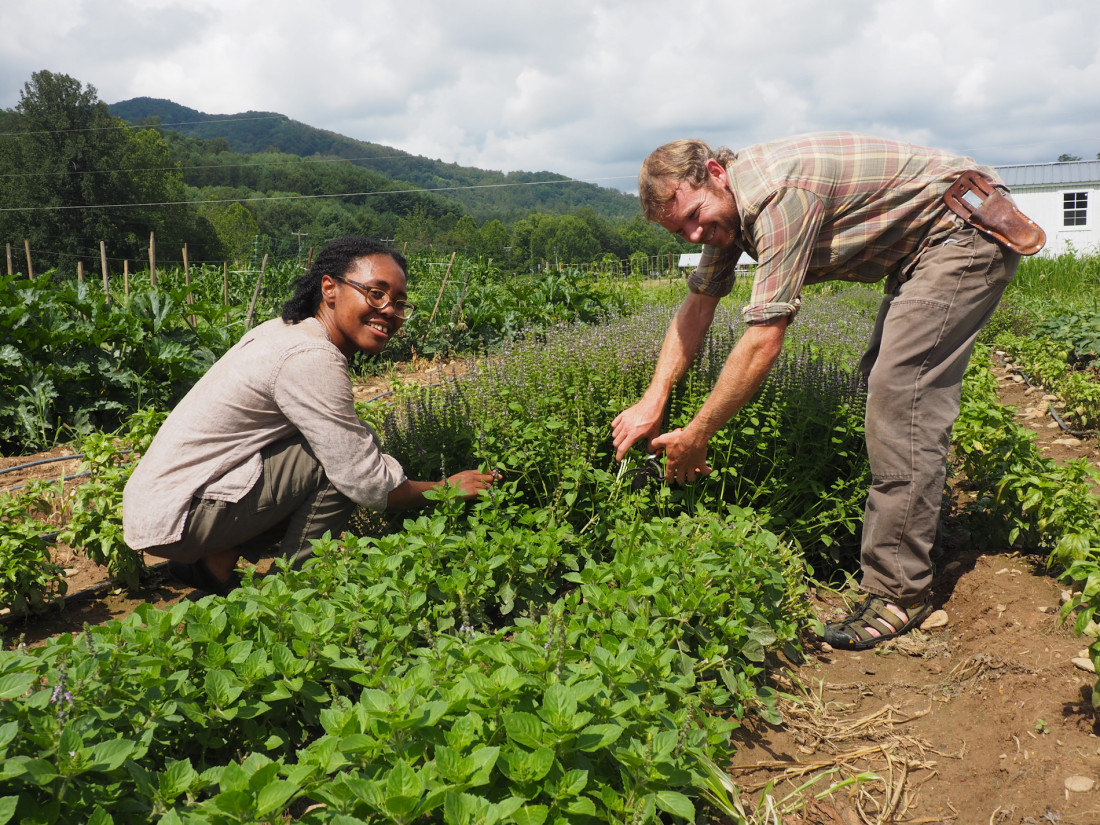Long before your favorite garden store stocks its shelves with those small, bright envelopes displaying an array of plant possibilities, there’s a highly coordinated effort between growers and buyers to bring seeds to market.
“We call it ‘the dance’ around here,” says Angie Lavezzo, general manager for Asheville-based Sow True Seed — a business that has grown up around the idea of saving and selling heirloom, open-pollinated seed varieties.
Even with a network of around 250 farmers, Lavezzo says, “We are constantly on the lookout for farmers to grow for us.”
Some of the demand stems from the challenge of sourcing seeds that have stable germination rates and can be saved and regrown year after year. For Eden Brothers, which operates out of an Arden warehouse and showroom, volume is a another important consideration when contracting with growers. In addition to individual seed packs, Eden Brothers also sells bulk seeds — from up to 5 pounds for some heirloom fruit and vegetable varieties to as much as 50 pounds for wildflowers.
Based on the variety and demand, the company partners with growers across the United States and internationally, while still maintaining strict standards for the more than 700 seed varieties it offers to the public. “We work with growers who can not only provide bulk amounts of cleaned, tested seeds, but also those who abide with our beliefs,” says general manager Crystal Provenzano, who coordinates the company’s seed-buying operations. The company’s philosophy, she notes, includes supporting the Council for Responsible Genetics’ Safe Seed Pledge, “meaning 100 percent pure, untreated, non-GMO seeds that are always tested for germination rates which far exceed industry standards.”
Growing plants for seed means adhering to specific guidelines for each plant variety to ensure that it doesn’t cross-pollinate. For instance, plants like lettuces have very short growing distances allowing multiple varieties to be grown in close proximity. But others, like cucumbers, might have a growing distance of up to half a mile between varieties. This means that farmers have to be aware of not only their own seed crops, but crops that nearby neighbors might be growing as well.
Still, many farmers in Western North Carolina are growing seeds for profit on as little as an acre of land. Amy Hamilton of Appalachian Seeds Farm & Nursery in Leicester grows several heirloom tomato varieties on less than 1 acre of her 3-acre site.
Hamilton’s main focus is organic plant production, with her heirloom tomato seeds, which she sells directly to customers, accounting for about 15 percent of her farm’s business. “For me seeds are like a language; there’s always a story associated with them,” she says.
She estimates that a few of her varieties have been grown in the area for at least 20 years. New heirloom varieties are introduced to her customers only after careful research, recommendations and a trial to ensure that the seeds can thrive in WNC’s growing climate.
Michael Rayburn of Rayburn Farm is similarly acquainted with seed trials. This year he is testing a couple of varieties of beans for Sow True Seed while continuing to grow an heirloom corn variety called Cocke’s Prolific, which should be available in 2019. If this year’s bean trials are successful, Sow True Seed will likely request a “bump-up” crop next year to incrementally increase its inventory of a desirable seed variety.
Like Hamilton, seed production isn’t Rayburn’s primary income source. He also grows herbs and spices, which he sells to area food and craft beverage companies. But, “for the time and materials, it’s profitable,” he says.
For established varieties, Sow True Seed normally contracts a minimum of 4 ounces for smaller seed varieties and 10 pounds for larger varieties. In general, the company buys smaller seed varieties, like tomato, for $30 an ounce, and larger seeds, like beans, for $12 per pound.
“I always assumed you would have to be large-scale to grow seed,” says Rayburn, sharing his surprise at how little equipment and land he actually needed to get started. During his first year growing plants for seed, his equipment consisted of a box fan and a few mesh strainers he picked up at a local discount store.
Interestingly, both Sow True Seed and Eden Brothers were companies that began as small home-based operations. For many growers and sellers, financial gains from the seed business are a bonus; the real reward is introducing forgotten plants back into the community, one tiny envelope at a time.




Before you comment
The comments section is here to provide a platform for civil dialogue on the issues we face together as a local community. Xpress is committed to offering this platform for all voices, but when the tone of the discussion gets nasty or strays off topic, we believe many people choose not to participate. Xpress editors are determined to moderate comments to ensure a constructive interchange is maintained. All comments judged not to be in keeping with the spirit of civil discourse will be removed and repeat violators will be banned. See here for our terms of service. Thank you for being part of this effort to promote respectful discussion.